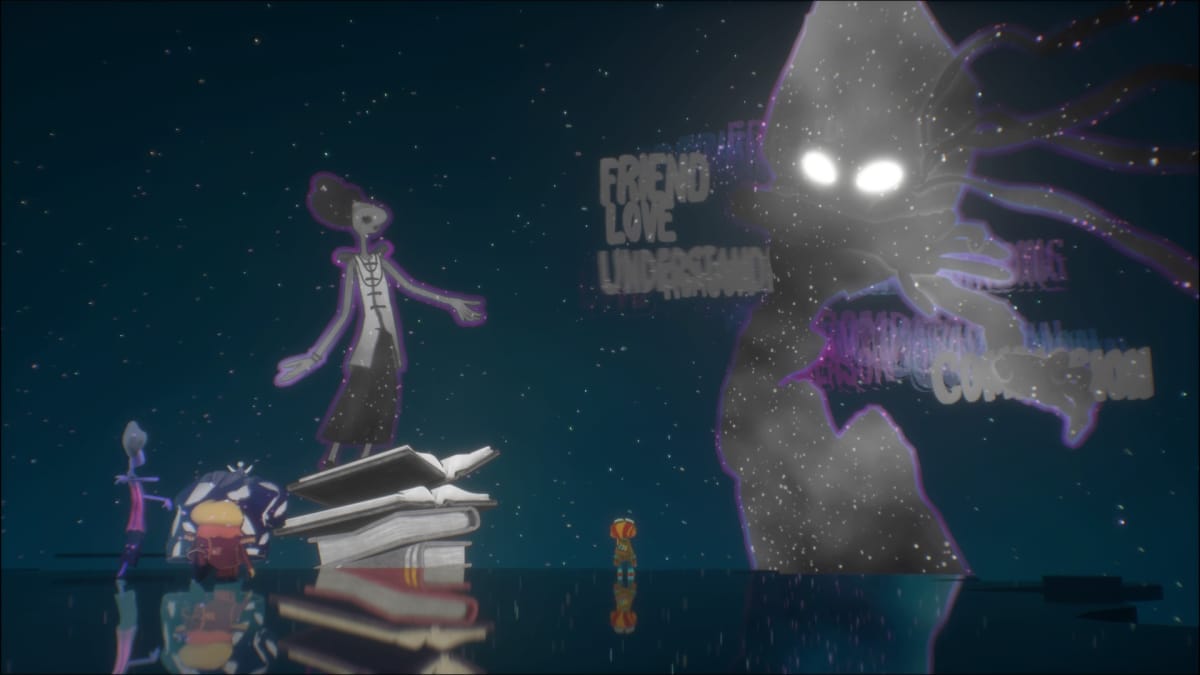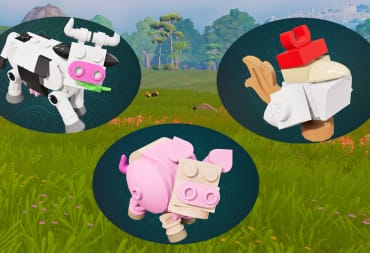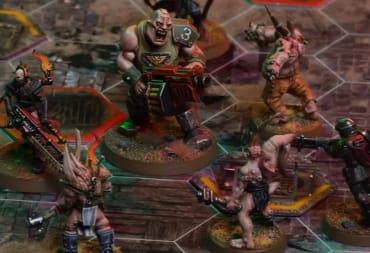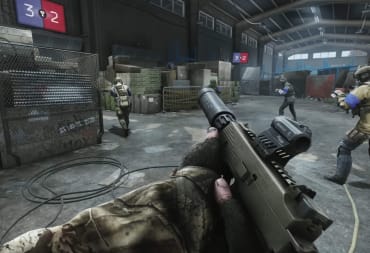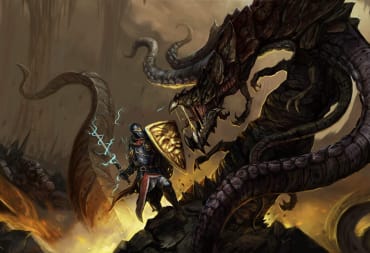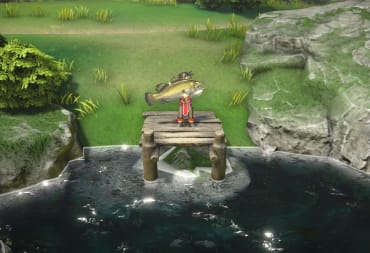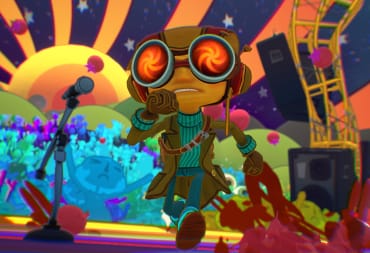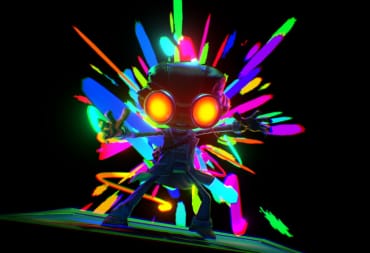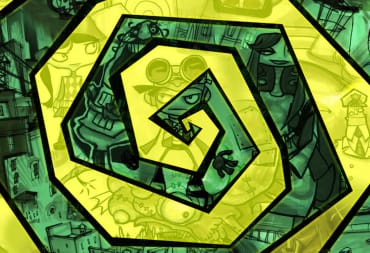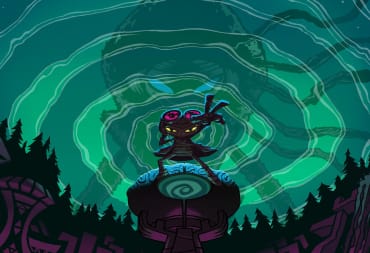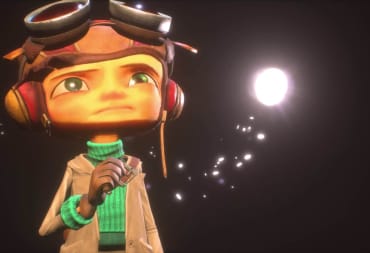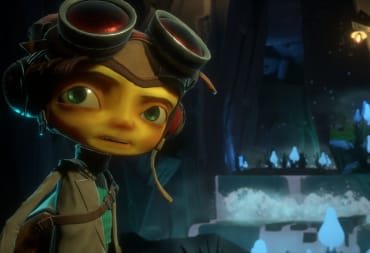We're not even two full weeks into 2022 and it is still maddening just how many great video games came out last year. But my mind kept going back to one title in particular, one that managed to greatly improve upon its very foundations in a positive light. A title that managed to go that extra mile with its presentation to send an affirming message of healing and empathy. I can't stop thinking about Psychonauts 2 and the way it pushes forward portrayals of mental illness.
This piece contains spoilers for Psychonauts and Psychonauts 2.
Psychonauts in the Beginning
First, a very brief history lesson about the original Psychonauts game. Released in 2005, Psychonauts was a collectathon platformer about a kid, Raz, attending a psychic summer camp. Eventually, Raz becomes aware of strange happenings at the camp, and due to plot shenanigans would have to dive into the surreal mindscapes of different people in order to get to the center of a conspiracy. It underperformed at release, but thanks to great reviews, solid word of mouth, and easy availability, it's become a gaming cult classic.
This was thanks in part to this mindscape level design that Psychonauts stayed in the public consciousness. It was a heady mix of psychedelic 1970s-inspired visuals, absurd witty humor, and twisted unconventional architecture. It was also one of the few video games at the time that tried to visualize highly abstract ideas and concepts and convey it through the environment. This becomes especially important as the levels progress. While the first half of the game had Raz inside the heads of relatively stable people, the second half involves him going through an insane asylum and navigating the brain spaces of those suffering from mental illness.
This is where the first game got some of its most enduring jokes as well as its greatest controversies. The most infamous of these levels is The Milkman Conspiracy, where Raz enters the mind of a paranoid conspiracy theorist named Boyd. While it is a masterclass in depicting Boyd's unhealthy view of the world rife with deadpan humor, the resolution of the level has Raz enabling Boyd's destructive impulses. In 2005, it was hilarious to see this guy attack the villain's stronghold with molotov cocktails fashioned out of milk bottles, but it now has more unnerving connotations in the wake of the Flat Earther and QAnon movements.
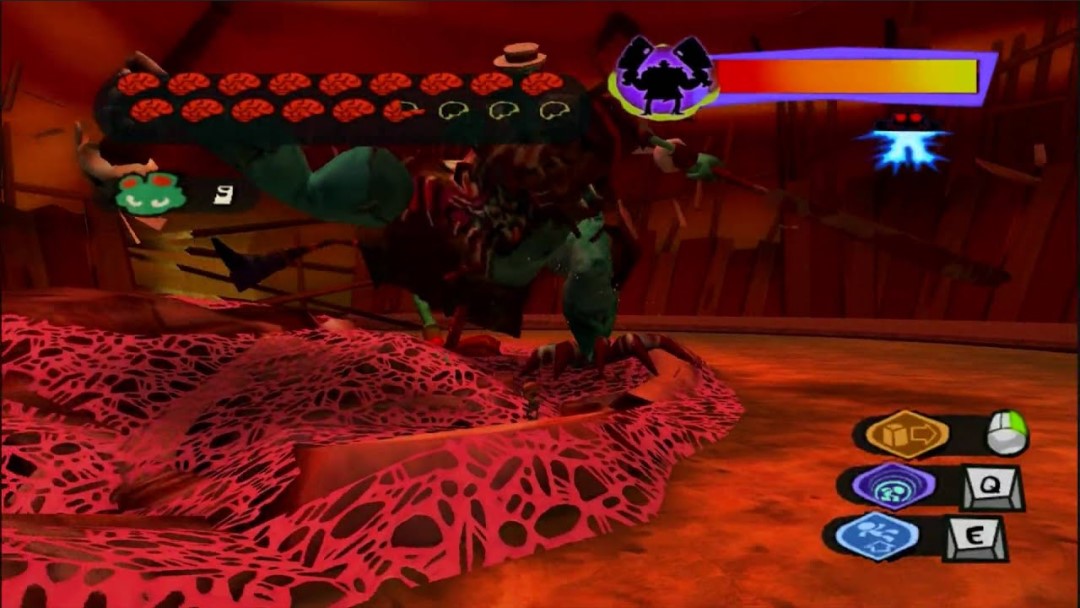
This kind of brazen approach to mental health continues throughout the rest of the game. Gloria Van Gouton is depicted with bipolar disorder, which the game represents as a theater production with overwrought mood swings happening with the flipping of a light. Coach Oleander is revealed to have deep-seated childhood trauma, which manifests in the final level: The Meat Circus. But Raz manages to magically "fix" these issues by the end. While this does play into the mischievous tone of the game, even framing these characters not as antagonists but as people who need help, it can be embarrassing with how reductively certain characters are portrayed.
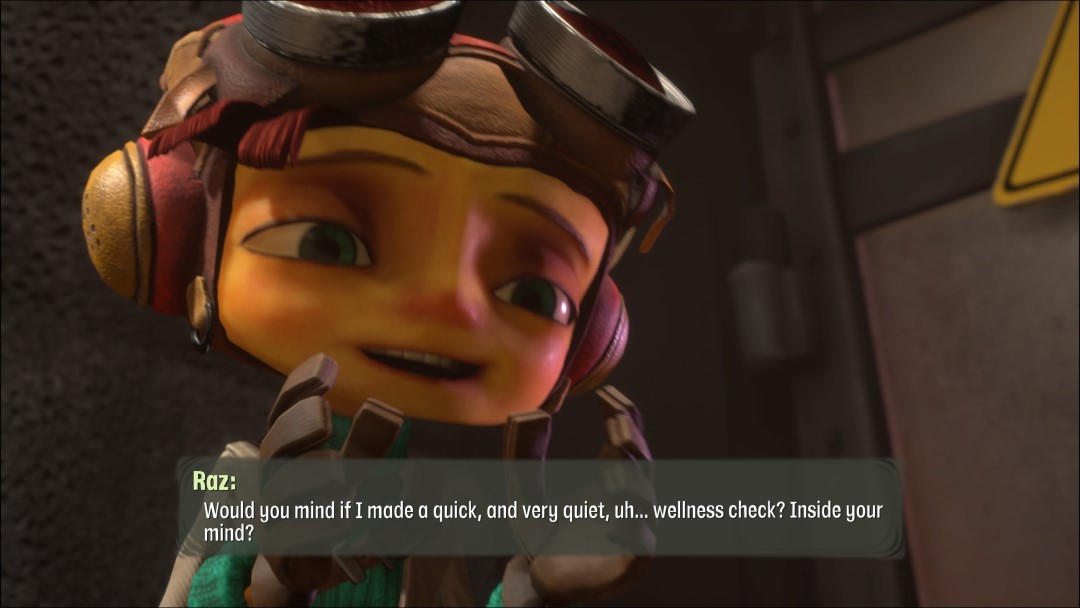
Psychonauts 2: Learning and Improving
Fast-forward to 2021 with Double Fine's release of Psychonauts 2. Like with many nostalgia sequels, there were plenty of concerns about the game's tone. Would the novelty of entering different mindscapes have the same narrative punch as it did back in 2005? Would Double Fine's storytelling and comedic chops still meet the expectations of their devout fanbase? But above all, how would this mindbending sequel portray the people behind the very minds Raz visits?
Thankfully, Psychonauts 2's new direction is made very clear. This happens while in the mind of Hollis Forscythe. Raz gets into her mind, hoping to mess with her conservative risk-averse mentality so that he can join a dangerous mission... only to go too far and give her a gambling addiction. While this does lead to a genuinely bizarre and hilarious level, a mash-up of a casino and a hospital, it ends with Forscythe reprimanding Raz for his behavior. She flat out tells him that the job of a psychonaut isn't to fix or change people's minds but "help them fight their own personal demons."
It is with this mission statement that the sequel manages to dive into some genuinely dark territory. Helmut Forebear must be slowly acclimated to new stimuli due to long stretches of sensory isolation. Compton Boole is overwhelmed by anxiety, choice paralysis, and hypersensitivity. Cassie O'Pia's very personal identity is frayed through years of disassociation.
Yet with all of this in mind, Psychonauts 2 manages to remain equally funny and heartfelt. The first big change is that Raz actively communicates with the person he's in the mind of. Where he was once an invasive force changing things with abandon, he's a compassionate voice having a dialogue with the person.
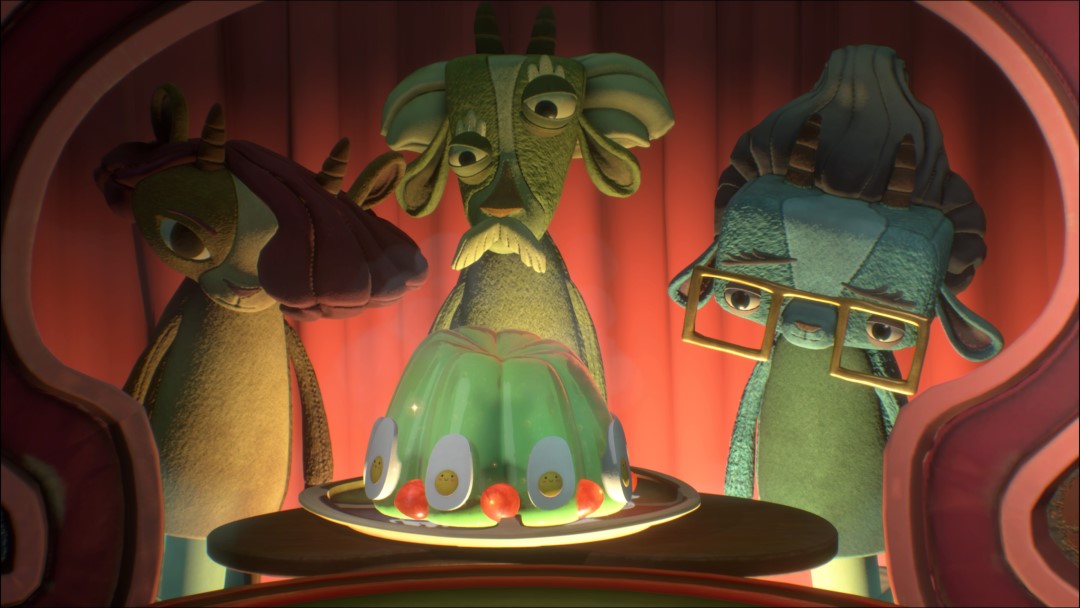
This is evident in Compton Boole's level. Framed as a fast-paced cooking show, the judges are all exaggerated, highly judgmental versions of Boole's colleagues, praying on his insecurities and feeding into his anxiety. But they are also portrayed as literal sock puppets, caricatures of the actual people Boole knows personally. The level ends, not with Raz beating them down and silencing them, but with Boole himself pulling the disguises off, revealing his own hands as the mouthpieces.
A more dour example comes from another character: Bob Zanotto. His mindscape is a series of islands, isolated by large stretches of oceans made out of hard liquor. Complicating this are vignettes of his backstory, which include his mother who died of alcohol poisoning, found by traveling literally to the bottom of several large bottles. But the most profound element of this level is Raz attempting to find seeds wedged in Bob's past and bringing them back to his island, hoping Bob will help them grow. Metaphorically, Raz is helping Bob cultivate his connections and support system again. The level even ends with Bob fishing more seeds of his past out of the ocean, showing that while he has a long way to go, he is on the right path.
In both situations, Raz does not directly interfere; he simply helps facilitate.
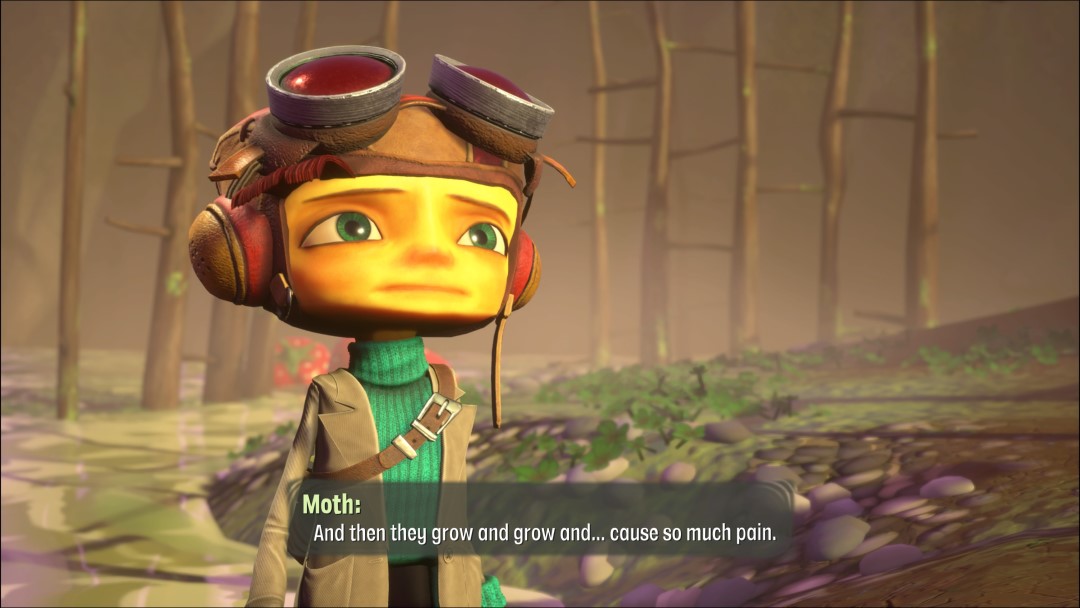
This brings me to another big change. Double Fine made it clear that they hired not just sensitivity readers for Psychonauts 2 but mental health professionals as well. Specifically, they collaborated with Dr. Raffael Boccamazzo, doctor of clinical psychology and the clinical director of the non-profit organization Take This. In an interview with Game Informer, Boccamazzo said, "People with serious mental health challenges are more likely to be victims than victimizers. There are, of course, exceptions to every rule. But statistically speaking, that's the case. And so the idea of someone with mental health challenges always being violent, that's a common thing in a lot of horror games, movies, books, that isn't necessarily representational of reality."
It is that underlying ethos that is felt throughout Psychonauts 2's runtime. Both Compton and Bob aren't framed as dangerous or unhinged people but those in need of help. Furthermore, Psychonauts 2 opens with a sensitivity warning, stating that the game would go into dark subject matter, but also emphasizes that the game is ultimately about healing and empathy. There will be jokes, but it will not be at someone's expense.
And that's the real miracle here: Psychonauts 2 pulls off this dire tightrope act. While our review of the game has sung its praises, actually going through these levels is something special. The metaphysical elements of the different levels gel with platforming fundamentals so well you feel like you've gotten to know these people better by the end. You understand Hollis' strict cost-saving measures and aversity to risk by her time working in a hospital. You empathize with Helmut's spiking panic attacks as he tries to be a part of the world again. But at the same time, you can laugh at the surreal nature of an animated egg looking forward to getting scrambled or the banter of book worms as they literally devour pages to make nests for themselves.
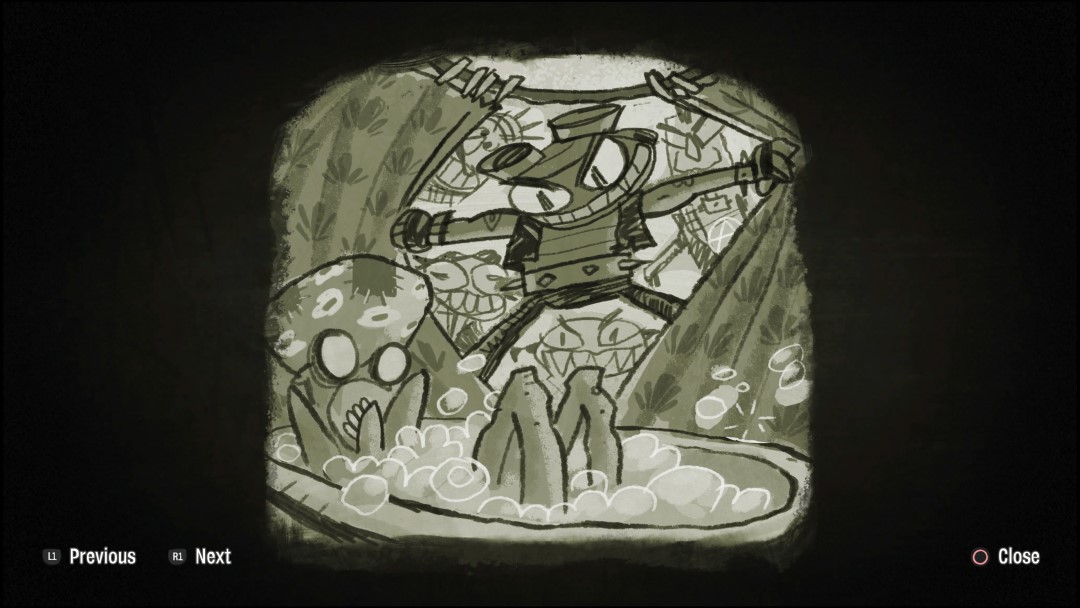
It is because of those accomplishments that my appreciation of Psychonauts 2 has only continued to grow long after the credits rolled. Mental health, for all of the progress that has been made, still gets generalized or rarely discussed in media. The idea of broken people being dangerous is still an issue, despite progress being made with mindful outlets. Where the characters from the first game were portrayed from a mostly neutral perspective (Boyd's enabled property damage notwithstanding), Psychonauts 2 made the effort to show the complexities and the compassion that can be shown towards people who fight their own personal demons every single day. That by itself is noble, which is why it's more impressive that they pulled it off.
Have a tip, or want to point out something we missed? Leave a Comment or e-mail us at tips@techraptor.net
